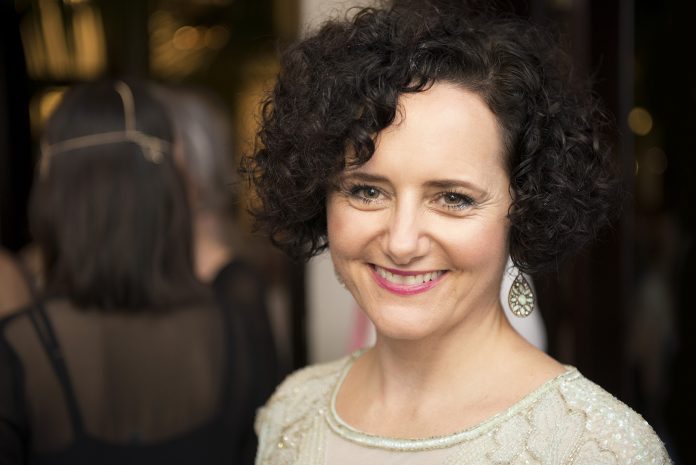‘Resilience’ is the latest buzz word and ‘must have’ training for doctors. The General Medical Council in the UK wants ‘emotional resilience’ training for medical students so that tomorrow’s ‘resilient’ doctors can cope with the stresses and strains of the job and not get so affected by it as are the doctors of today.
This call has been precipitated by the unprecedented rise in burnout in the medical profession, affecting nearly 1 in 2 GPs and surgeons in some reports (1,2). On top of that, addiction, suicide, anxiety and depression are higher in the medical profession than in the general population (3) – a sobering fact that those who are charged with caring for others are seemingly having trouble caring for themselves. In the desperation to solve this dilemma it has been advocated that the resilience training that is utilised for the army should be implemented for medical students.
But the question must be asked, will the resilience training utilised for those whose job includes being trained to kill, be effective for those who are trained to care for and heal their fellow human beings?
Do we want our future doctors to be ‘tough and strong’ like soldiers or sensitive and caring to the needs of patients?
The word ‘resilience’
The word resilience itself can lead to a misunderstanding of what resilience is – its definition includes words like ‘tough’ and ‘strong’ and I for one certainly used to think being resilient was all about being tough, strong, and hard – armour in place as I went to face the battle fields of suffering amidst the NHS hospitals. This seemed an effective strategy at first – walls of concrete are hard to break down and give the illusion that one is unaffected and coping well with the demands of the job.
It has since become clear to me that such a strategy is doomed to fail on all counts – it neither protected me from the onslaught of suffering and pain I witnessed nor did it help me provide quality care to others. Concrete walls are pretty insensitive to the needs of others and serve to keep people out – they do not provide the warmth and care for others so needed when it comes to tending to the sick nor do they actually stop us from being affected – and ultimately they can crumble to dust.
So how do we care for others and not get drained, depleted and detrimentally affected?
Is there a way to be caring and compassionate on a daily basis without having that compassion sucked dry and turned into cynicism, burnout and fatigue?
How can we remain open, sensitive and caring to the needs of others without getting hurt, crushed and squashed by the high levels of human suffering we bear witness to every day?
Our innate resilience
There is an innate resilience within every human being – but we have lost touch with how to tap into our deepest wells of wisdom and in that lost-ness, we have devised a plethora of coping strategies that may serve as a band-aid for a while, but eventually we come to realise that they don’t really work or provide true answers to these dilemmas.
Of course, there are the maladaptive coping strategies that we turn to like drinking alcohol, over-eating, excessive exercise, distracting ourselves with entertainment and so forth. In addition, there are numerous strategies to improve how we think and which focus on the mind and our cognitive functions… but whilst we might attempt to live in or escape to our minds, we actually live in our bodies! This is an obvious and simple fact – but one that we forget to pay attention to when it comes to caring for ourselves.
Our bodies are very wise and we ignore their wisdom at our peril. We have the arrogance to think we can put whatever we like into our bodies (in terms of food, drink, thoughts, emotions etc.) and they will cope with it, and they do… up to a point! But eventually the subtle messages from the body become not so subtle – and illness, disease, or an accident or incident is required to bring us to a stop so that we may reconsider our ways.
Our bodies are not pieces of meat to transport our heads from A to B. They are highly sensitive systems feeling everything that is there to be felt – it’s just that we have numbed ourselves to not recognise what it is we are feeling – but try as we might, we can’t stop feeling it! And so we get affected because we do not know how to handle and cope with all that we are feeling – and in a misguided way we try to stop/block or numb what we are feeling, thinking that will help us cope better – when in fact it does the reverse!
True resilience
True resilience is not about toughening up or shutting people and feelings out, but comes from being totally open to feeling everything, to honouring our sensitivity and listening to our bodies and letting people in – no concrete walls in place, no need to block or numb what we are feeling. By honouring what we feel, we come to know that we are not our emotions like anger and frustration; that these are superficial currents passing through us, harming us as they do so, and that there is a much deeper place within us – a place of true greatness, of grandness, even love.
True resilience comes from understanding that this greatness is within everyone, a greatness that we can each tap into within ourselves, a greatness that is loving and caring for all, that understands there is always a bigger picture than the one we see with our two eyes… a picture that understands everyone is on their own journey of healing. In doing so, we can learn to not take things so personally – to ‘observe and not absorb’ what is going on within and around us or within other people, giving them the space to follow their own path.
By committing to living in a way that is caring and loving for our bodies, we deepen our compassion and understanding of ourselves and our connection to our own greatness. In that connection, our understanding of life and everything that happens in it is transformed – so that when we meet adversity we are more able to hold a steady, loving consistency and do not get buffeted about on the waves of life. And so as we become more resilient, the degree to which we need to ‘bounce back’ or ‘bounce forward’ gets less and less – as we predominantly stay steady, centred, consistent and loving, irrespective of what challenge or adversity is before us.
References:
- http://healthland.time.com/2012/08/21/is-your-doctor-burned-out-nearly-half-of-u-s-physicians-say-theyre-exhausted/
- https://www.aafp.org/fpm/2015/0900/p42.html
- https://www.beyondblue.org.au/docs/default-source/research-project-files/bl1132-report—nmhdmss-full-report_web










I am a health professional and I am guilty of allowing my recent heartbreak from a toxic relationship to interfere with my ability to separate my pain enough to fully engage in caring for my patients… however, the workload reduces exponentially as I grieve but also reduces the distraction time working gives me… I continually seek help and advice to cope but it is not ideal. I carry some shame finding myself being affected so….
James, thank you for your beautiful honesty…it is by opening up and allowing ourselves to be vulnerable and just feel what is there to be felt that we also open ourselves up to true healing… so glad to hear you are seeking help and trust you are finding it helpful…
There is no shame in realising that we too are people, perfectly imperfect as we all are, and life experiences such as these humble us and in the long run, can make us more caring and compassionate human beings and doctors.
Dear James, this comes with love. It is very hard when personal pain impacts on our ability to care. I do hope that you have found the support that you need – relationships ending can cause deep pain. When a relationship has been toxic, as you describe, at times we lose our belief in ourselves, making us vulnerable. Then we need to connect to our own inner hearts to find a place of healing and to trust that we can find the right people, friends or professionals to stand beside us as we find our way home.
Thank you James for being so open and honest. What I have learned is that when things are difficult for me, part of that difficulty can be because of how I am seeing it, my expectations, my desires, beliefs etc that have not been met or fulfilled, combined with my judgements and criticisms of myself and that the more I am able to let these go, and let the other people go, and come to see it in a different way, the more I feel restored and able to cope and move on. I have also learned that being hard on myself doesn’t help one bit!!! I am more able to trust now that there is a bigger picture that I may not see at the time, but it gives me enough space to be able to take the next step knowing that this too shall pass….it is temporary and need not bring me down. So give yourself a break and embrace the possibility that you can come to a deeper understanding of yourself and the situation, one that frees you from the burden and grief, where you can enjoy caring for your patients and just being you, knowing you are more than enough as you are.
Doctors treat bodies with their bodies, metaphorically speaking. They use their hands. By reading the blog I could feel the impact hardness and toughness will have on the quality of care, if the doctors and other health care professionals choose this as protection to keep stress and emotions out. How refreshing, simple and logical in a way: the body as entrance for true resilience. Open up to our sensitivity, listening to the signals of our bodies…. I would say: a new class is born for doctors, also the trainees at university: resilience through bodycare.
I love the clarification of resilience here. I know I always thought resilience was being able to get through tough times, continue on no matter what, pick myself up dust myself off and keep on going when needed. Really I had no sense at all of remaining sensitive and open to people. It amazing to feel that we can get to a place where we are not needing to constantly re-fill our bucket, because the choices we make keep our bucket full if not overflowing.